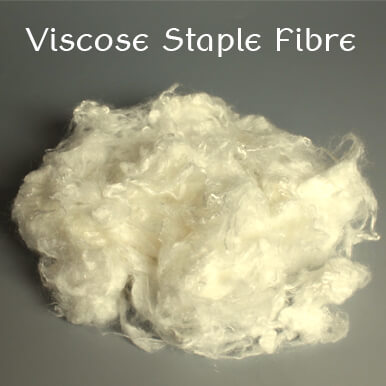The anti-dumping tariff on viscose staple fibers (VSF) has been removed by India
_large.png)
16th August 2021, Mumbai:
MMF and its blended textile product exports account for 60 to 80 percent in most competitive countries, but only around 25 percent in India, owing to the high cost of raw materials. With effect from August 12, the Department of Revenue has issued a notification canceling the anti-dumping duty on VSF.
"Following the industry delegation's meeting with the Prime Minister in December 2019 and subsequent representations, the NDA Government has removed the anti-dumping duty on PTA and rejected proposed anti-dumping duties on PSF, MEG, and other products, making polyester staple fiber and yarn available at international prices," according to a SIMA statement.
MMF and its blended textile product exports account for 60 to 80 percent in most competitive countries, but only around 25 percent in India, owing to the high cost of raw materials. During the previous eleven years, however, anti-dumping duties were imposed on viscose staple fiber. The Directorate General of Trade Remedies (DGTR) proposed that the anti-dumping tax on VSF be removed in its Sunset Review final finding Notification No. Case No. SSR AD – 03/2021 dated July 31, 2021. As a result, on August 12, 2021, the Department of Revenue issued a notice removing the anti-dumping tax on VSF with effect from the date of the notification.
Southern India Mills Association (SIMA) Chairman Ashwin Chandran stated, "Unlike other manmade fibers, viscose staple fiber produced by a single indigenous manufacturer was extremely expensive, costing Rs.20 per kg, though the domestic manufacturer has recently reduced the price to match the international price to some extent. Because the industry is primarily MSME and fragmented, the indigenous manufacturer's presumed export pricing idea has a significant impact on the power loom and downstream sectors." Anti-dumping duties on VSF varied from $ 0.103 USD per kilogram to $ 0.512 USD per kg, according to SIMA.
According to Chandran, the industry began to experience a scarcity of viscose fibers since supply was limited to just about 200 spinning mills, but polyester fiber was made freely available across all segments. "The MSME segment was denied access to viscose staple fiber, which had a significant impact on the power loom and MSME clothing industries. The elimination of anti-dumping duties on VSF would be extremely beneficial to the MSME sector "he stated.
"The government recently launched the Production Linked Incentive Scheme, which would spend Rs.10,683 crores in the MMF value chain by selecting 42 HS Codes for MMF apparel, 10 MMF Technical Textiles items, and 14 MMF fabrics. The elimination of anti-dumping duties would make it easier to meet the goal of producing 40 to 50 world champions in MMF goods, as the majority of these items are made of viscose and its blended fabrics "Chandran stated.
According to the SIMA press release: "The VSF spinning segment has been hit hard by duty-free imports of VSF spun yarn from ASEAN nations, despite the fact that it benefitted the power loom and downstream sectors. In recent years, over two lakh power looms in Tamil Nadu have switched to VSF fabric manufacturing, and the elimination of the levy would encourage power looms in Tamil Nadu and other areas of the country to develop at an exponential rate."

TOP 5:
- Malls in India record 80% sales rebound in June-July
- New government initiatives to benefit the industry: Sanjay Jain,TT Ltd
- Clovia looks at tech adaptation to meet customer needs
- 'CHIC Shanghai' fashion and lifestyle trade show to happen on October 9-11
- Dollar Industries looks to strengthen global presence with new collections
























